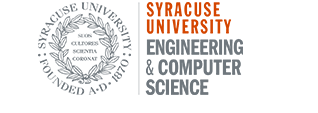Funding Opportunities For Graduate Students: NASA, NASA SPACE TECHNOLOGY RESEARCH FELLOWSHIPS “NSTRF17.” – FALL 2017, Nov 3 - seeks to sponsor U.S. citizen and permanent resident graduate student researchers who show significant potential to contribute to NASA’s goal of creating innovative new space technologies for our Nation’s science, exploration, and economic future. Eligibility: individuals pursuing or planning to pursue master’s (e.g., M.S.) or doctoral (e.g., Ph.D.) degrees. $74K/year, may be renewed for one additional year.
For Faculty: NIH, Big Data to Knowledge (BD2K) Enhancing the Efficiency and Effectiveness of Digital Curation for Biomedical Big Data, LOI—Nov 1; Full Proposal—Dec 15. - Support the development, improvement and implementation of tools and approaches that increase the efficiency and effectiveness of digital curation processes used to characterize and describe the digital data used in or resulting from biomedical research.
NSF, Network for Computational Nanotechnology (NCN), LOI—Nov 3, Full Proposal—Dec 2. - Solicits grants with compelling new nanoscience modeling and computational tool(s) which addresses critical needs. Supports research in (1) Engineered nanoBIO, (2) Hierarchical nanoMFG and (3) Nano-Engineered Electronic Device and Module Application Node. Limited Submission: contact ospoff@syr.edu if you intend to submit.
DOE, Determining Research, Development, and Demonstration Necessary for Clean Hydrogen Production to Enable Multisectoral Deep Decarbonization, Nov 4 - RFI seeks input on priority Research Development and Demonstration areas to enable deep decarbonization of industrial, transportation, and power generation sectors through wide-scale deployment of hydrogen.
NASA, Sea Level Change Science Team, Nov 15. - This program is intended to integrate research results, data sets, and model output to improve the accuracy and spatial resolution of sea level change estimates, and communicate these results in a simplified manner to the scientific community and the general public.
NIH, NIDDK Inflammatory Bowel Disease Genetics Consortium (IBDGC) Genetic Research Centers (GRCs), LOI—Nov 14, Full Application—Dec 14 - To identify risk-conferring and protective variants of causal genes for IBD, and to elucidate the mechanisms by which these variants influence the pathophysiology of IBD.
NSF, Secure and Trustworthy Cyberspace (SaTC), Nov 16 - Seeks proposals that address cybersecurity and privacy, and draw on expertise in one or more of these areas: computing, communication and information sciences; engineering; economics; education; mathematics; statistics; and social and behavioral sciences.
NSF, Computer and Network Systems, Nov 16 - Seeks research and education projects that develop new knowledge in two core programs: Computer Systems Research (CSR) program; and Networking Technology and Systems (NeTS) program
NSF, Computing and Communication Foundations, Nov 16 - Supports research and education projects that develop new knowledge in three core programs: The Algorithmic Foundations (AF) program; The Communications and Information Foundations (CIF) program; and The Software and Hardware Foundations (SHF) program.
NSF, Ecology and Evolution of Infectious Diseases, Nov 16 - Research on the ecological, evolutionary, and socio-ecological principles and processes that influence the transmission dynamics of infectious diseases. The central theme of submitted projects must be quantitative or computational understanding of pathogen transmission dynamics.
DoE-NE, Scientific Infrastructure Support for Consolidated Innovative Nuclear Research, Nov 23 - Develop innovative technologies that offer the promise of dramatically improved performance for advanced reactors and fuel cycle concepts while maximizing the impact of DOE resources.
NASA, ROSES 2016: Heliophysics Grand Challenges Research National Aeronautics and Space Administration, Nov 23 - Solicits basic and applied research supporting research and technology in space and Earth sciences, including, but not limited to: theory, modeling, and analysis of SMD science data; aircraft, scientific balloon, sounding rocket, International Space Station, CubeSat and suborbital reusable launch vehicle investigations.
DOD, Parkinson’s Impact Award, Nov 30 - Encourages applications that support the full spectrum of research projects or ideas that specifically focus on scientific and clinical Parkinson’s disease issues.
| 
